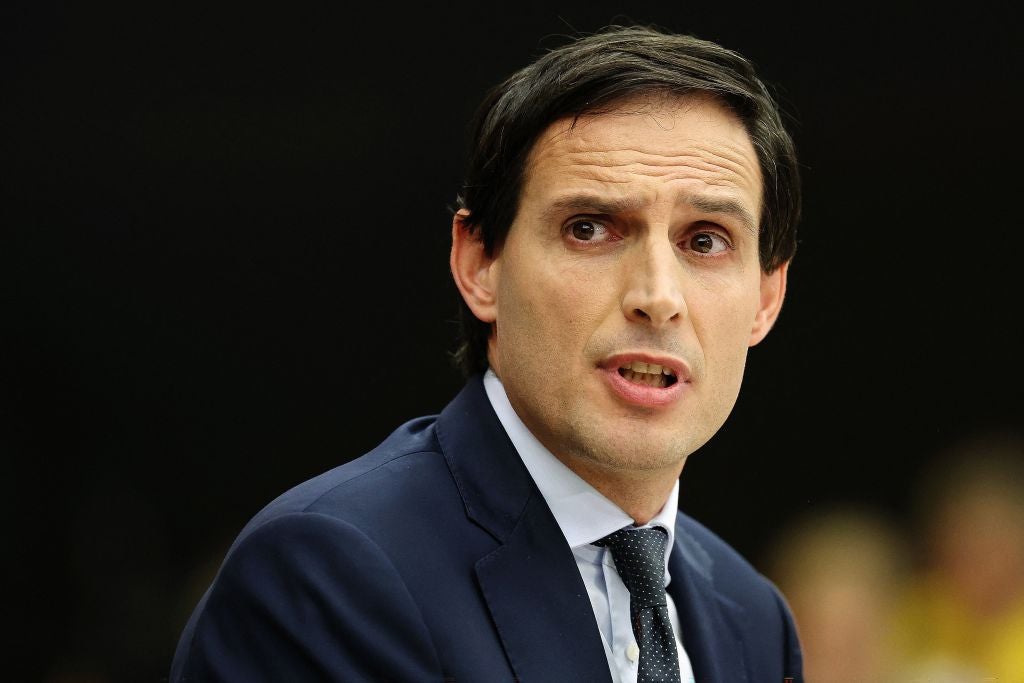
In the lead-up to COP 28’s transport-focused day, there have been wide-ranging discussions on the future sustainability of various sectors, from aviation to shipping. Since the conference opened, several deals and agreements have been signed, and shipping CEOs came together to ask regulators for more stringent decarbonisation targets.
All three modes of non-road transport (air, sea, and rail) were discussed at the European Union’s side events in Dubai, with more sustainable fuel options dominating the discussions.

Discover B2B Marketing That Performs
Combine business intelligence and editorial excellence to reach engaged professionals across 36 leading media platforms.
But ahead of his arrival in the United Arab Emirates, the EU’s climate commissioner Woepke Hoekstra ruffled some feathers in the sector by suggesting an immediate tool to cut emissions and accelerate the change to Sustainable Aviation Fuel would be a kerosene tax for international flights.
Hoekstra, who followed fellow Dutchman Frans Timmermans in post as the EU’s climate tsar, said South American and Gulf nations were among those to express interest in the policy. He added that his mission as COP was to ”talk about the why, the what and the how” of the proposed tax.
While politicians like Hoekstra and Ireland’s climate minister Eamon Ryan have thrown their weight behind the proposal, aviation industry analysts suggested a split in the industry’s thinking.
Taxation or starvation?

US Tariffs are shifting - will you react or anticipate?
Don’t let policy changes catch you off guard. Stay proactive with real-time data and expert analysis.
By GlobalDataResponding to Hoekstra’s assertion that “We tax everything alive, what we eat, when we work, and then at the last time when we die but not aviation, and that is off,” aviation consultant John Grant Airport Technology a new kerosene tax would “lead to the death of aviation in some communities”.
“And with that death will be economic hardships and a loss of employment in surrounding regions since there is a direct correlation between air connectivity and economic growth,” Grant explained.
On the other side of the argument is Andrew Charlton, managing director of Aviation Advocacy based in Geneva.
“I am completely in favour of taxing aviation fuel more. I say more because it is only fuel used [by] international sectors that is tax free,” he told Airport Technology.
“It is not fair to let kerosene go tax free. It would be better, of course, if that money was channelled into work on sustainable fuel,” Charlton added.
Implementation
The focus on COP 28 for these discussions is based on the need for international cooperation on the future of “green” aviation.
As Charlton pointed out, there are commercial jet fuel taxes already on some internal flights (“ Domestic flights in the US and other places, including Australia are taxed. That is an accident of history, dating back to 1944 and the Chicago Convention.”), but the question of ‘who pays who’ for international flights is a complex one.
“Making it happen will be hard, at least in Europe, because a tax measure requires unanimity, and that is never easy. Single states (strictly, two states, acting together) could tax fuel now for flights between those states, so if France and Germany agreed to bilaterally tax fuel for flights between them, they could, but it is a risky step to take… Outside Europe all it takes is brave politicians,” he opined.
For Grant, the issue is on where they money will come from, rather than where it will go.
“Airlines are already having to charge higher air fares to cover their operating costs for a variety of reasons, inflation, oil prices, scarcity of spare parts disrupting normal operations and more, their margins are likely to fall back in the next year and that means some will be operating with between 2-3% returns; hardly stellar businesses with enough fat to be taxed further,” he pointed out.
“And with any taxes being a direct pass through to the traveller the impact on demand will probably result in less revenue for the airlines.”
Don’t miss our coverage of COP28! Subscribe here for exclusive insights & analysis.At the start of the UN conference, Hoekstra made a joint statement with COP28 President Designate Sultan Al Jaber, in which they committed to EU contributions to COP28 Energy funds, among several agreed principles.
That statement was then undermined by reports that Al Jaber claimed that there was “no science” which suggested fossil fuels must be phased out to meet our climate goals.
Although the world has, generally, moved on from debating the very existence of climate change, the furore over Al Jaber’s comments (and subsequent roll-back) and the disunited aviation viewpoints show how difficult coming to any meaningful agreement on a global scale will be.
But, as ever, Charlton can see the funny side.
“I have advocated for many years that the industry should ‘tax’ itself, by taking a euro (for example) from each ticket and take control of the funds… but that would be much too sensible.”



